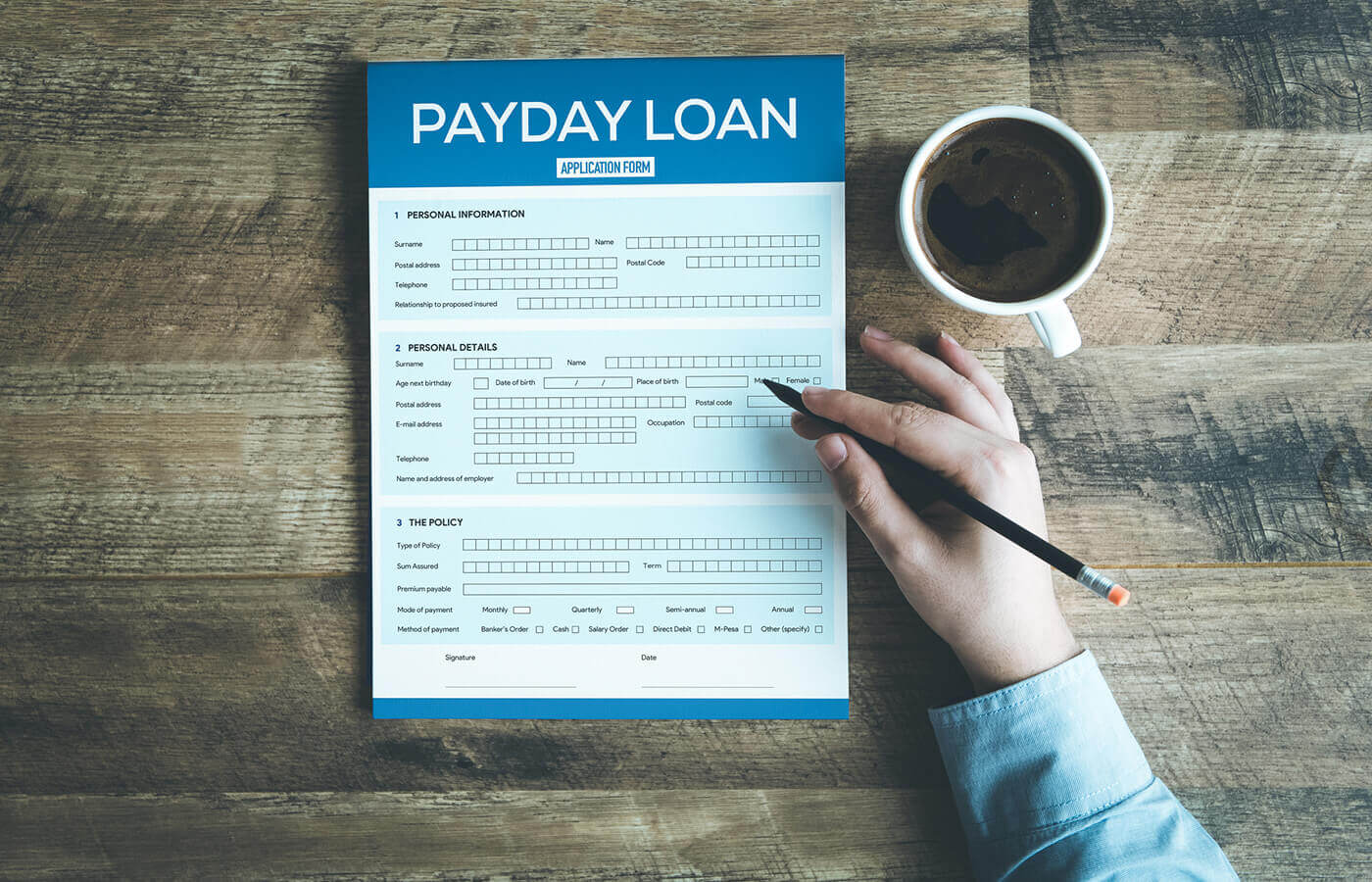Learn how to maximize Installment Loans for lasting use
Wiki Article
A Comprehensive Guide to Home Loans: Solutions and Options Explained
Charting the globe of home loans can be intricate. Different choices exist, each with one-of-a-kind functions and effects for potential property owners. Comprehending the distinctions between government-backed and traditional finances is important. Moreover, the application procedure includes careful documentation and pre-approval actions that lots of overlook. As borrowers begin on their home-buying journey, understanding exactly how to handle these duties effectively could mean the distinction in between monetary stability and difficulty. What methods can empower them on this path?Understanding Home Loans: Kinds and Terms
Comprehending the numerous types of mortgage and their connected terminology is vital for possible homeowners, as it equips them with the expertise needed to make educated monetary decisions. Home mortgage can be generally categorized into adjustable-rate and fixed-rate home mortgages. Fixed-rate home loans maintain a regular rate of interest price over the life of the loan, providing security in month-to-month payments. Cash Advance. On the other hand, variable-rate mortgages include rate of interest that may rise and fall after an initial set period, potentially leading to reduced preliminary payments yet raised future expensesAdditional terms is essential for quality. Principal refers to the funding amount borrowed, while rate of interest is the cost of loaning that amount. The term of the finance suggests its period, typically ranging from 15 to 30 years. Understanding these basic principles allows prospective customers to navigate the facility landscape of home financing, ensuring they select the appropriate financing choice that straightens with their financial situation and long-lasting goals.
Conventional Loans vs. Government-Backed Loans
A significant difference in home financing exists between standard loans and government-backed loans, each satisfying various debtor demands and scenarios. Standard fundings are not insured or ensured by the government and usually require greater credit report and down payments. They are typically interesting customers with secure economic histories, as they might use affordable interest rates and terms.In contrast, government-backed fundings, such as FHA, VA, and USDA finances, are made to aid details groups of debtors, including first-time property buyers and professionals. Cash Advance. These lendings usually include reduced down settlement demands and even more adaptable credit history standards, making them easily accessible to a wider variety of people
Eventually, the option between government-backed and traditional finances pivots on the consumer's monetary situation, lasting goals, and eligibility, making it important to meticulously evaluate both alternatives before making a decision.

The Duty of Rates Of Interest in Home Funding
Rate of interest rates play an important duty in home funding, influencing borrowers' choices in between set and variable rate financings. The selection in between these choices can substantially influence regular monthly settlements, impacting overall affordability. Understanding just how rate of interest rates function is necessary for anybody maneuvering via the home mortgage process.Taken Care Of vs. Variable Rates
Buyers encounter a crucial decision when choosing between dealt with and variable rates, as this option substantially affects the cost of funding gradually. Fixed-rate home loans offer stability, locking in an interest price for the life of the lending, which can be useful in an increasing rate of interest setting. This predictability permits property owners to spending plan more effectively. Alternatively, variable-rate home loans, or adjustable-rate mortgages (ARMs), commonly begin with reduced preliminary prices that can vary based upon market conditions. While this may cause reduced initial repayments, consumers deal with the threat of enhanced prices in the future. Inevitably, the option in between variable and set rates depends on private economic situations, threat resistance, and assumptions relating to future rate of interest trends.Effect on Monthly Repayments
When examining home funding alternatives, the impact of rates of interest on month-to-month settlements is a key element to consider. Rate of interest directly affect the overall price of loaning, influencing just how much a borrower will pay monthly. A lower rates of interest outcomes in smaller sized monthly payments, making homeownership much more economical. Alternatively, higher rates can considerably boost regular monthly responsibilities, possibly straining a home owner's spending plan. Additionally, the financing term plays an important duty; longer terms might spread out payments out but can lead to paying even more rate of interest with time. Recognizing just how passion rates communicate with funding amounts and terms is crucial for consumers to make informed economic choices and choose a home mortgage that aligns with their long-term financial objectives.Home Loan Brokers vs. Direct Lenders: Which Is Right for You?
When thinking about a mortgage, prospective customers must recognize the distinctive functions and responsibilities of home mortgage brokers and straight lending institutions. Each option provides its own benefits and drawbacks, which can substantially affect the overall price of funding. An enlightened option requires cautious evaluation of these aspects to figure out the most effective suitable for individual requirements.Functions and Obligations Specified
Maneuvering the intricacies of home funding requires a clear understanding of the duties and duties of home mortgage brokers and direct lending institutions. Mortgage brokers function as intermediaries, attaching customers with lending institutions. They assess a consumer's monetary scenario, curate funding alternatives, and guide customers through the application process, usually leveraging several loan provider partnerships to secure desirable terms. Alternatively, straight lending institutions, such as banks and lending institution, supply car loans directly to customers. They manage the whole finance process, from application to funding, with a concentrate on their own items. Each alternative presents unique methods for obtaining financing, making it crucial for borrowers to assess their needs and choices when determining between engaging a mortgage broker or collaborating with a direct loan provider.Disadvantages and pros Contrast
Picking between a mortgage broker and a direct loan provider can considerably influence the home funding experience, as each choice uses one-of-a-kind advantages and downsides. Home mortgage brokers function as middlemans, supplying accessibility to multiple lenders and potentially better rates, while streamlining the loan process. They might charge costs and count on compensation frameworks that can influence their recommendations. On the various other hand, straight lending institutions enhance the process by offering in-house financings, which can lead to much faster approvals and fewer problems. Conversely, they may have a limited selection of items and much less versatility regarding Get More Information prices. Ultimately, the choice pivots on specific preferences, economic situations, and the wanted level of assistance throughout the home loan trip.Price Ramifications Analyzed
While reviewing the cost effects of home mortgage brokers versus straight lenders, possible property owners must consider different factors that can substantially impact their total expenses. Home loan brokers typically bill fees for their solutions, which can vary significantly, affecting the overall financing cost. Nevertheless, they often have accessibility to a larger series of loan products and competitive prices, potentially conserving customers money in the lengthy run. Conversely, direct lending institutions might provide an extra straightforward process with potentially lower upfront expenses, but their financing options may be restricted. It is essential for homeowners to compare rates of interest, costs, and terms from both brokers and lending institutions, guaranteeing they make an enlightened decision that aligns with their financial objectives and requirements.The Mortgage Application Refine: What to Expect

The home finance application procedure can often feel daunting for numerous applicants. It typically starts with gathering required paperwork, including proof of income, credit rating history, and personal recognition. Lenders utilize this info to assess the applicant's monetary stability and figure out finance qualification.
Next, applicants submit an official application, which might include submitting on the internet kinds or offering details personally. see this website During this phase, loan providers assess various aspects, such as debt-to-income proportion and credit history, to choose lending terms.
When pre-approved, the loan provider will carry out an extensive appraisal of the building to identify its worth lines up with the car loan amount. This stage might likewise include added background checks.

After final approvals and problems are satisfied, the financing is refined, causing the closing stage. Comprehending each step equips applicants, making the trip smoother and extra manageable as they move towards homeownership.
Tips for Managing Your Home Financing Sensibly
Efficiently steering the home mortgage application process is just the start of an accountable financial trip. Taking care of a home mortgage requires focus to a number of essential practices. First, consumers should develop a clear spending plan that accommodates month-to-month home mortgage repayments, real estate tax, and insurance coverage. On a regular basis examining this budget plan helps protect against overspending and warranties prompt repayments.Additionally, making additional payments when feasible can considerably minimize the funding principal and total rate of interest paid over time. Customers need to likewise maintain open lines of communication with their lending institution, particularly in times of financial trouble. This can result in possible options such as funding modifications or re-financing options.
Ultimately, it is suggested to keep track of credit report ratings consistently. A good credit rating can offer chances for much better finance terms in the future. Cash Advance. By complying with these ideas, home owners can browse their loan responsibilities effectively, ensuring long-lasting financial health and stability
Regularly Asked Inquiries
What Are Closing Costs and Just How Are They Determined?
Closing costs include costs related to settling a home loan, including appraisal, title insurance, and car loan source charges. These prices commonly vary from 2% to 5% of the lending amount, varying based on location and loan provider.Can I Receive a Mortgage With Bad Credit?
Yes, Cash Advance people with negative credit score can get approved for a home mortgage, though options might be restricted. Lenders often call for greater down payments or passion rates, and discovering government-backed loans might improve opportunities of approval.What Is Mortgage Insurance and When Is It Required?
Home mortgage insurance coverage secures loan providers against default and is typically called for when a borrower makes a down payment of much less than 20%. It assures that lending institutions recover losses if the debtor fails to pay off the lending.Exactly How Does Refinancing Work and When Should I Consider It?
Refinancing involves changing a present home mortgage with a brand-new one, commonly to protect a reduced rate of interest or adjustment loan terms. Property owners should take into consideration refinancing when rate of interest rates go down considerably or their economic situation enhances.What Takes place if I Miss a Home Loan Settlement?
If a mortgage repayment is missed out on, the lender usually analyzes late costs, reports the misbehavior to debt bureaus, and may launch repossession procedures if repayments remain to be neglected, ultimately threatening the property owner's residential or commercial property.Fixed-rate home mortgages keep a consistent rate of interest price over the life of the loan, offering stability in monthly payments. A significant difference in home funding exists between standard lendings and government-backed lendings, each catering to various consumer demands and scenarios. In comparison, government-backed lendings, such as FHA, VA, and USDA fundings, are developed to assist details groups of consumers, consisting of first-time homebuyers and professionals. Interest prices play an important role in home funding, affecting debtors' decisions in between fixed and variable price finances. Fixed-rate home loans provide security, locking in an interest price for the life of the loan, which can be helpful in a climbing passion rate atmosphere.
Report this wiki page